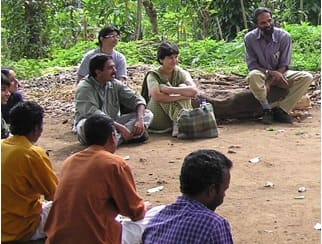
Gender
Gender is a set of social, cultural, political, psychological, legal, and economic characteristics that society assigns to each individual as part of its socially constructed and biologically determined identity. Gender roles and behaviors vary widely within and across cultures, and intra- and inter-gender relationships can be more or less dynamic. While for some, gender is a binomial factor (male/female), for others, gender refers to a multi-variable continuum of characteristics that enrich and enliven our being in the world.
Gender equity is realized when no one is dis-favoured because of gender-related prejudices. In this sense, equity is not simply synonymous with ‘having equal opportunities’, as positive opportunities (programs of affirmative or positive action) may be required to correct gender biases. Gender equality is achieved when women, men and non-binary gender have equal rights, opportunities and life prospects as well as the power they wish and need to shape their own identities and contribute to society.
A gender perspective for ICCAs—territories of life
Understanding gender roles and possible biases is crucial in designing, implementing, monitoring and evaluating policies and projects dealing with territories and natural resources and the environment in general. To adopt a gender perspective means going beyond the ‘no harm’ principle and focusing on overcoming gender biases. This includes measures to promote gender equality and the empowerment of oppressed genders, such as women may be.
A primary characteristic of ICCAs—territories of life is the strong and profound connection between a people or community and a territory or area. This characteristic is promoted and strengthened through the effective engagement in governance of all who feel, live, and demonstrate that connection. It is linked to the conservation of #traditional knowledge and sustainable practices related to particular ecological contexts (see #Sustainable use of biodiversity). A gender perspective can add to this the enhanced awareness of the specificities of each gender, help to identify biases and, if needed, envision and implement corrections or compensations. As part of good governance practices, a gender perspective for ICCAs—territories of life can foster enhanced relations across generations, within communities, and among genders. It can promote the continuation and evolution of traditional knowledge in all sectors of a community, along with stronger capacities, social recognition and respect.
Key reference: Mikkola, 2019.